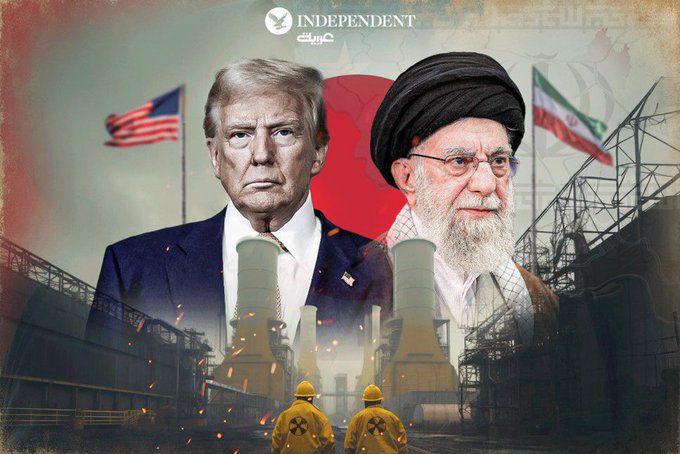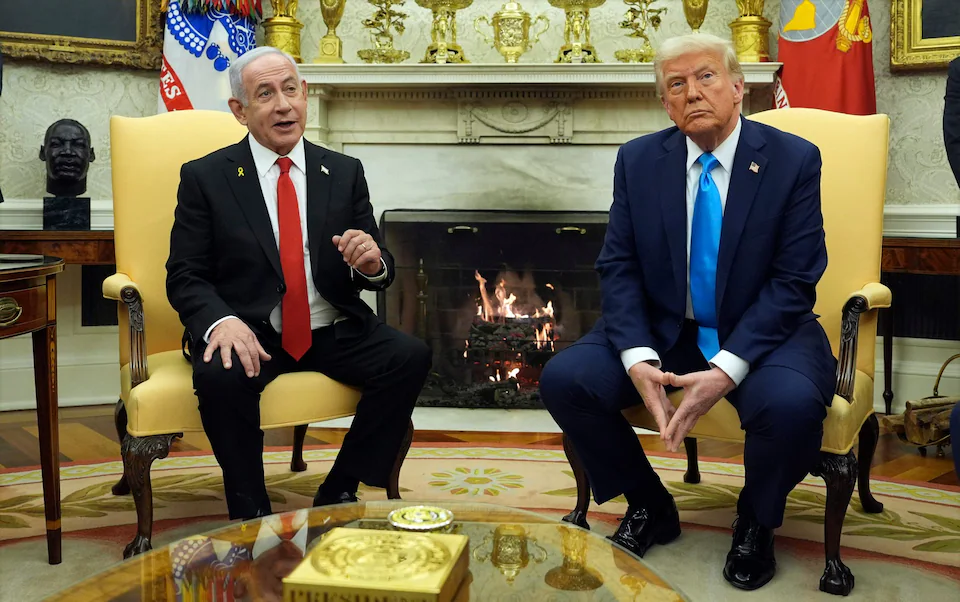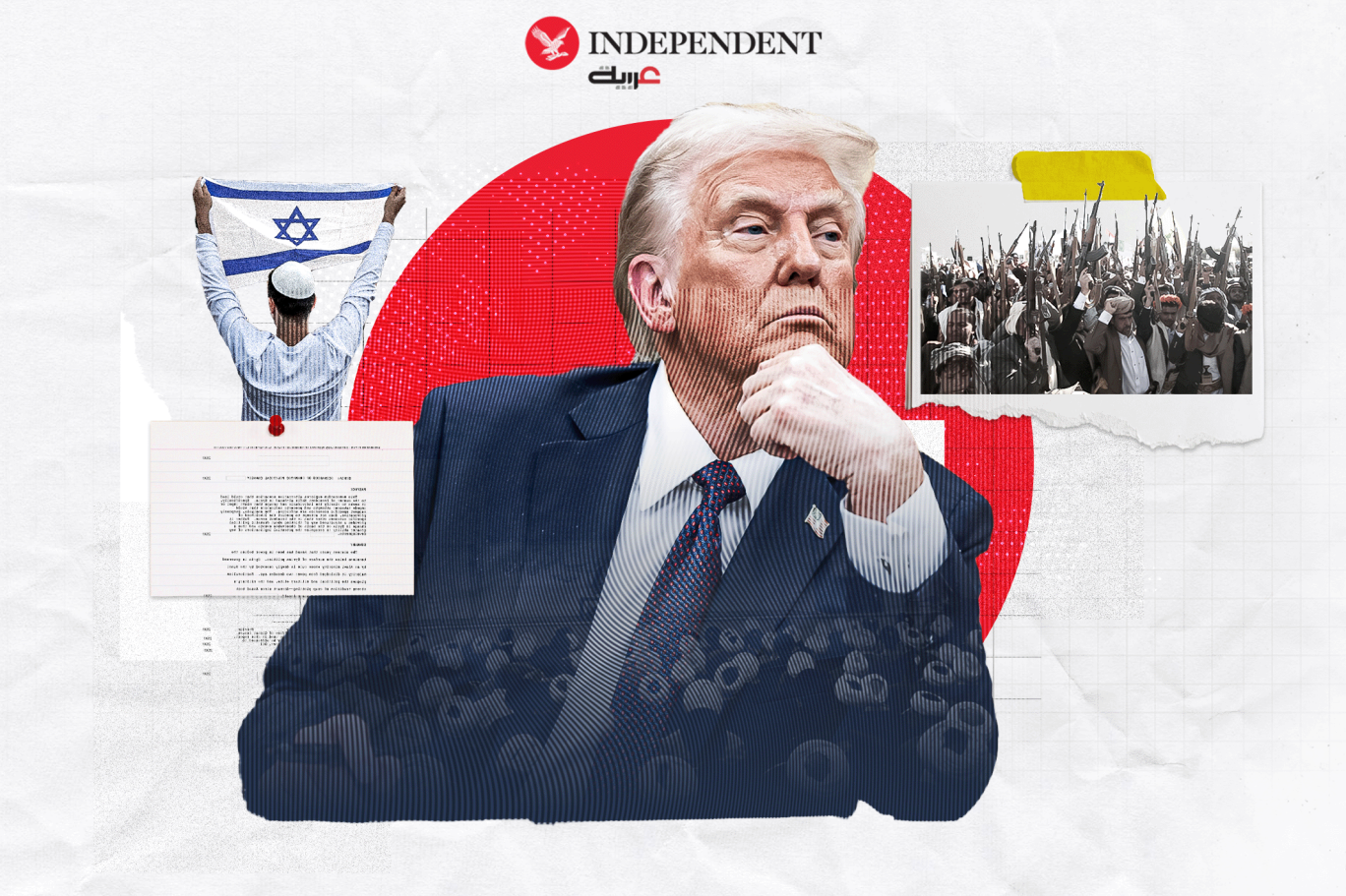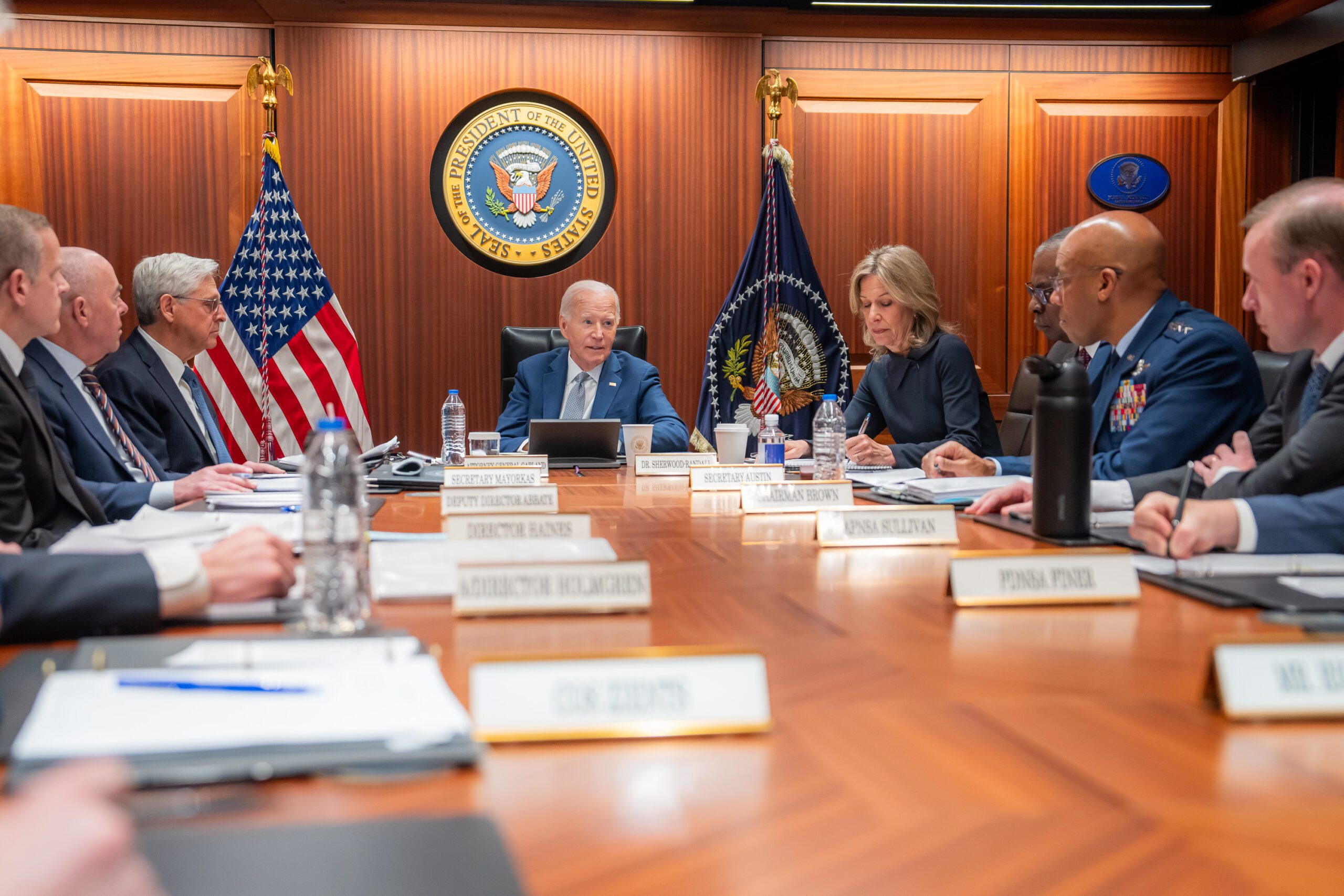Dr. Dave Wurmser
Transitions of administrations, when passing from one party to the next, are always tricky processes. There is much change, and there is much effort to avoid change. From my experience in previous transitions, this is especially true for transitions that pass from a left-leaning government to a conservative-leaning government. This is true for two reasons. First, the left has as part of its beliefs the institutionalization of power in the government, while the right inherently is more averse to institutionalized government power. As such, the left being far more attentive to the power of embodying ideas and ideologies within institutionalized structures, they are more attentive as those institutions pass to and slip from their executive control. This is especially true of progressives even more so than liberals, since the former is schooled in the ideas of Antonio Gramsci and the “Long March through Institutions” – a primer for socialists and communists on how to take over corporate and governmental institutional structures. Second, the vast majority of the government’s employees identify more with the left than the right. This is especially true as a conservative government that defines itself against the Washington establishment comes into power. As such, every transition, and most likely this one far more than most, if ever, is accompanied by a mad race by those loyal to the ideas of the previous administration to set and lock the new administration into policies anchored in the concepts of the outgoing administration.
There is a window of opportunity to do this during transition because before the new team can take over, its most senior positions – the ones filled by the most reflective of the new administration’s ideas and trusted by the incoming president – require confirmation and are generally filled only in the weeks after inauguration. Thus, the unconfirmed personal staff of the president – the National Security Advisor or special assistants – are the only ones on board at the start. Second, because of security clearance requirements and the fact that an official has no authority to hire employees before he himself holds the position, second tier and deeper down political appointments are slow to be filled – meaning those few aides who are installed in the first days of the president’s term still must rely on staff, bureaucracy and in some cases even the appointees of the previous administration. Needless to say, an isolated president, with a few lone staffers and no supporting bureaucracy is highly vulnerable to having policies and ideas foisted upon it unwillingly, unwittingly, or even somewhat dishonestly. I saw this in action myself during the transition in 2001. Indeed, as late as 2005, one major proliferation/arms control policy issue came up that demanded a fundamental policy reconsideration, but when raised, the bureaucracy refused to allow the issue discussed since, it said, there had already been the final high-level policy decision. When? In early February 2001 – namely in the first weeks of the new Bush administration before any staff below the cabinet level had come on board, and even some cabinet members were still not confirmed.
Such policy fiats can be set either through finagling major policy statements, forcing decisions by the security cabinet before they have any staff, or it can be done by signing treaties and executing policies by the previous administration in its last days, especially when those policies embody the strategic imagery that is being rejected by the incoming administration.
Avoiding this transition trap relies entirely on the patience and savviness of some of the top staff of the new administration who are in non-confirmation positions – – which means they can take office immediately on 20 January and do not need confirmation. They will help set and monitor the implementation of policy on behalf of the president. But they do not have their own staff, nor are they offered the ones who really have the expertise, and most importantly there isn’t a group of people surrounding them who think like them that can reinforce their new policy outlook. As such some of these early staffers get overwhelmed, manipulated and barreled over into fulfilling the policy set by the previous administration intentionally designed to lock the incoming administration into the strategic concept that had failed before the new offices were taken.
This is likely the situation now with respect to Middle East policy. The new administration advocates a sharp departure not only from the previous administration, but from the common wisdom and consensus of the established foreign policy elites and the ensconced foreign policy bureaucracy. The “America First” policy may be somewhat undefined, but a clear principle is that we treat our friends better than our enemies, and that we do so since we know strong friends who project power both secure American interests and reduce their reliance on the constant investment of American power. In terms of the Middle East, the most marked feature of this is strong support for Israel, and more respect to Saudi Arabia, the UAE and Bahrain to protect themselves and defend against those who would challenge them.
The departing administration had the opposite view. The unapologetic assertion of regional power was seen as provocative and the support for allies had to be tempered by our desire to moderate and integrate (some would describe this as appease) our enemies. Israeli power was seen to make Israel too secure to be pliable to adopt policies preferred by Washington but rejected locally. The rising influence of progressivism on the left, moreover, sharpened this hostility to Israeli, Saudi and UAE power and influence.
As such, during a transition, not only are residual staffers from the previous, largely progressive, administration trying to tether a new administration and prevent it from embarking on a new path, but so too are foreign powers, like Qatar, Turkey, and others, who trying desperately to freeze policies in place that were highly advantageous by the previous Biden administration, were aligned with their strategic vision, worked to their benefit. These foreign powers, thus work aggressively during transition to prevent the proper and smooth construction and application of a new policy that may be favorable to their opponents. Again, this is especially marked in this transition. It is no secret that most of the political appointees now in confirmation to enter the new administration are strongly pro-Israeli, support the Saudi kingdom, and see the world much in the same way that America’s strongest supporters of Israel see it. Their vision is diametrically opposed to the vision of the outgoing administration.
The two core pillars upon which the Biden team rested its strategic outlook in the Middle East were first that Iran can be moderated, integrated and harnessed to provide regional stability, and second that regional instability is primarily driven by the failure to solve the Palestinian problem, which in turn can only be solved by the creation of a Palestinian state within the 1948 armistice lines. The Abraham Accords were dismissed as a marginal event and not a real peace treaty – let alone strategic bloc forming – because they did nothing to bring about a solution to the Palestinian problem. Moreover, the solution to the Palestinian conflict was informed in the Biden era by an idea President Obama (much of the Biden team hailed from that administration) himself formulated in a teleconference with the Conference of Presidents of Major American Jewish Organizations a decade ago: Israeli strength reduced Israel’s longing for peace and hardened Israeli will to reject compromise. It also lent Israel a buffer of strength that rendered it more immune to American pressure to impose concessions Israel would otherwise be unwilling to make.
After October 7, this determination to solidify the two pillars of paradigm was actually reinforced in Washington. Israeli victory and destruction of its enemies akin to the 1967 victory was resisted. Israel’s effort to bear down on all the proxies constituting Iran’s ring of fire were leashed, and Israel’s strikes against Iran itself were capped and diminished. But at the heart of the State Department’s greatest efforts was the attempt to tap into Israeli vulnerabilities – – such as the hostages – – and desires – – like peace with Saudi Arabia – – and leverage them to impose on Israel strategic weakness and dependency. In Israel’s strategic weakness and dependency, the Biden team hoped to be able to impose on Israel policies that Israel would normally reject as either strategically dangerous or ideologically repulsive. As such, the Biden team tried throughout the war to increase Israeli dependency and vulnerability and prevent a solid Israeli strategic victory.
At the same time, Israel suffered trauma and vulnerability after October 7. Its world of ideas and paradigms – deterrence, condominium with Palestinians, status quo, slow moderation of the Palestinian political orbit – all crashed. Israeli weakness and pain did not make Israel pliable and dependent as President Biden had theorized a decade earlier but drove Israel into a defensive crouch and war it believed was its second war of Independence – a desperate battle just to survive with little or no latitude for compromise, goodwill or tolerated vulnerability. Israel was in its own World War II battle of civilizational survival against absolute evil. As such, the world of the Biden team was the opposite of the world as seen by Israel.
Clearly the incoming Trump administration subscribes to Israel’s view of the world and the region, not the Biden team’s. So the effort in this transition of the Biden team is to ensure that policies, agreements and statements are made that lock the new administration into their strategic paradigm, therein derailing and sabotaging the principles of the “America First” agenda, much like UNSC Resolution 2334 of December 23, 2016, attempted to lock the incoming first Trump administration into its policies rejecting any Israeli legitimacy beyond the 1948 ceasefire lines.
Enter the various ceasefire agreements now pursued by the Biden administration during transition.
In its twilight days, the Biden administration has focused its efforts into obtaining a ceasefire between Israel and Hamas in Gaza. But Hamas would settle for nothing less than a full Israeli defeat and a return to the status quo ante of October 6 in terms of a powerful Hamas state ruling over all Gaza with improperly regulated access to resupply its weapons and access to the world through Egypt. Moreover, the aims of Hamas were not altogether opposed to every aspect of US policy, which also sought to prevent a decisive Israeli offensive victory and reoccupation of Gaza. So to pursue its objective and to secure a ceasefire, the administration leveraged what was at its disposal to prevail over Israel – – namely Israel’s primordial hope to retrieve its hostages, its practical need to obtain arms supplies from the United States, and its diplomatic need to have an American cover internationally. The war, the Biden team hoped, could actually advance the idea that Israel cannot win militarily, must concede to the Palestinians in order to make peace, and that Israeli weakness can successfully impose Israeli malleability, and thus makes more likely peace and the establishment of a Palestinian state. It also makes Israel dependent entirely on the United States for addressing the existentially, threatening Iran nuclear issue and again subjugates Israel to a fiat by Washington on the Palestinian issue accordingly. The cease-fire agreement and the Lebanese cease-fire agreement are both thus anchored fundamentally to that idea. If the United States under the Trump administration adopts and carries through both agreements, and it forces Israel neither to react to violations nor jettison either agreement at critical phases to finish the war that could not be finished under the Biden administration, then essentially the incoming administration perpetuates the world view on the Middle East that embodied the previous administration.
The second trap is peace with Saudi Arabia. The Abraham accords were grounded in the idea that there is such an overarching strategic interest for the UAE, Bahrain and others to align strategically with Israel to face common enemies and to take advantage of the common capabilities of both countries to strongly advance the economies, strategic survival and interests of each. The Abraham Accords were informed already then by the idea of reducing American presence, a strong and robust Israel that is self-confident and independent, and a rejection of the subordination of those relations to the Palestinian issue. Essentially the big innovation was to remove the Palestinian veto over peace with Arab countries and decouple the issue entirely.
The Biden administration through the ceasefire to the Gaza conflict has essentially now welded progress in pursuing an Israeli-Saudi peace to the Palestinian issue. That grants the Palestinians – any Palestinian faction whether Hamas or the PLO — a veto over an Israeli peace treaty with any Arab country: the lowest common denominator Palestinian faction attains thus the ability to derail it. It has attempted to do so since early this year – using Israel’s deep desire for such a peace – and, in fact, ever since it took office in 2001 to shunt it off the main rails into running through the Palestinian track. It forced Palestinian representation and involvement in all the Abraham Accords working groups already in 2022, in effect paralyzing them and making them moribund. The third phase of the cease-fire – a regional state-building effort to rehabilitate Gaza– is essentially transformed also into the first phase of a peace-process between Israel and Saudi Arabia, so Israel must accept a devastating, life-threatening strategic defeat in Gaza and allow essentially a Palestinian entity run by Hamas and internationally, supported to arise there in order to get to through the third phase and get into the serious process of making peace with Saudi Arabia. This forces Israel, if it wishes to have peace with Saudi Arabia, to strategically suffer a catastrophic defeat in Gaza.
This of course, would amount to a catastrophic sabotage of the new administration. The new Trump team would not only be unable to build a policy anchored to “American First” principles upon which it would most pride itself, but it also would make Israel weak and unable to carry its own burden. Israel would be ever more dependent because of its weakness, which ensures that the United States will not have a strong ally that will share the burden of regional defense in Israel, or in the Saudi Kingdom or among others. Instead, the United States would be forced to invest more in endless support of allies who cannot defend themselves. This is a danger to the United States, a rejection of its stated principles in favor of continuing the Biden administration’s, and represent an existential threat for Israel, Saudi Arabia in the UAE.
But that is precisely the global approach with which the Biden administration is trying to shackle the incoming administration and force it into adopting replete with all of its assumptions, worldviews, and conceptions.
The ceasefire agreement between Israel and Hamas may be necessary in order to retrieve whatever live hostages Israel is able to repatriate. Every family in Israel longs for closure and the Israeli state owes that to its bereaved, tortured and terrified citizens.
But it is a vital American interest under advertised “America First” principles to allow Israel to restart the war, and perhaps to enforce unilaterally UNSC Resolution 1701 and 1559 in Lebanon which are embedded in the Lebanon ceasefire. If Hamas emerges with a story of victory in any form, not only will Israel soon face another October 7, replete with a global explosion of antisemitism, but so too will the global Jihadi effort feel its oats with the steroid of perceived success – a ghoul which will raise its head not only in the Middle East, but in cities and towns all over the West.
We already see it. A new, dangerous narrative is emerging regionally. Prominent Syrian Islamists aligned with the new Syrian government, now argue that Syria’s Baathist regime fell not because Israel had annihilated the Hizballah/IRGC security infrastructure and substructure of Syria’s regime, leaving it unable to even mount a minimal defense of itself, but because the momentum of the great “victory” of Oct 7 “Al-Aqsa flood” had translated into a regional tide that swept out Assad and ushered in the beginning of a new Islamist era that will liberate Jerusalem, destroy the “Zionists,” and defeat the West. As long as Hamas rules Gaza and argues it survived, and thus won, the war, this view will grow as a cancer that will haunt Israel, Europe and America.
Israel must be allowed – for our sake as much as their own — to abandon the ceasefire agreement when the last hostage it can hope to still retrieve has been liberated and finish the war in a way that results in a cataclysmic victory. It must be allowed to complete a devasting defeat of regional radical threats and deflate global Jihadi confidence and momentum.
1https://x.com/hahussain/status/1880279055003459876?s=43&mx=2







